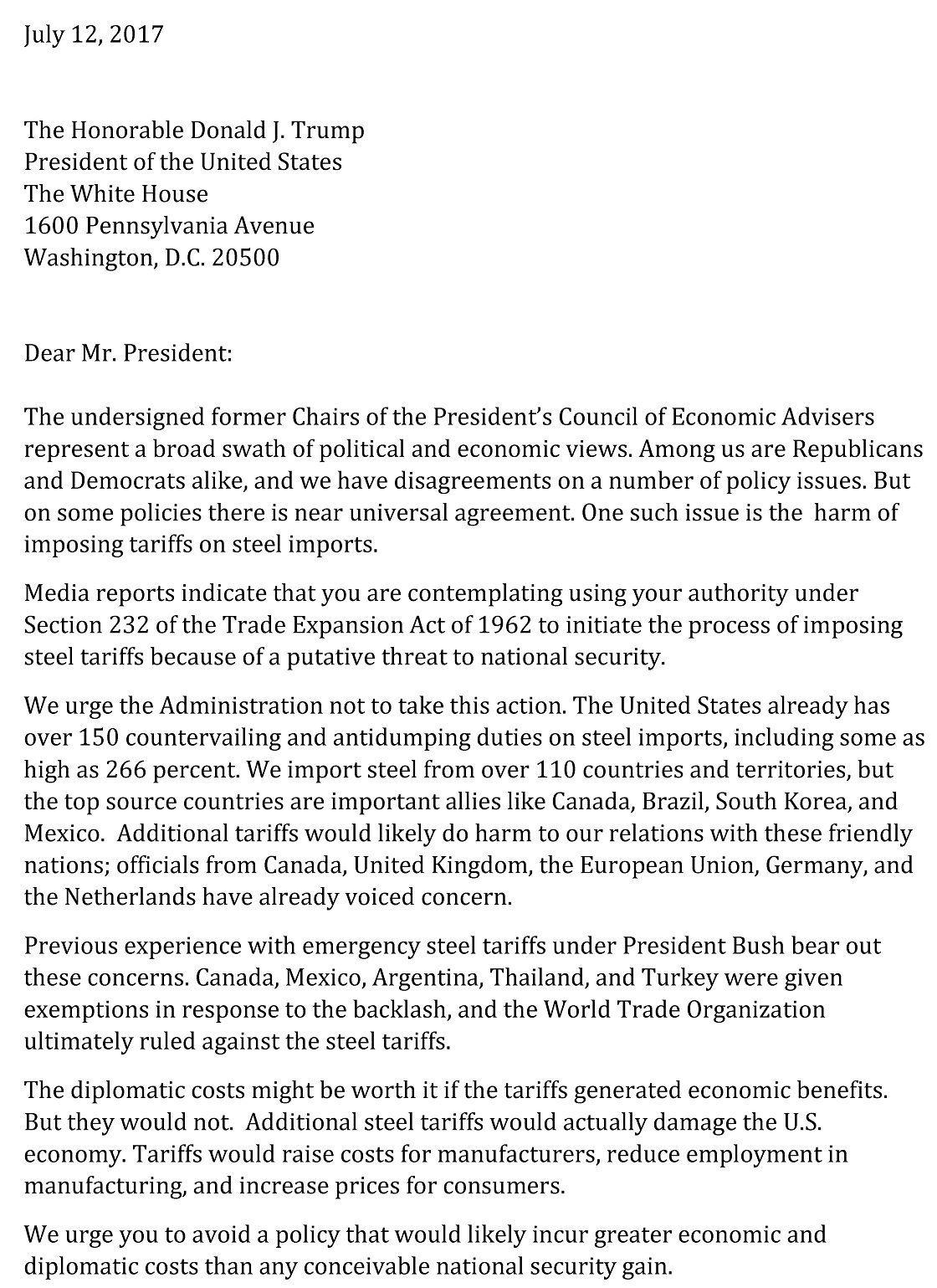Government/Policy

July 13, 2017
Economists Advise Against Section 232
Written by Tim Triplett
A group of the nation’s most distinguished economists and former presidential economic advisors, including Ben Bernanke and Alan Greenspan, has sent President Trump a letter urging him not to pursue further tariffs on steel imports under Section 232.
 As the July 12 letter notes, the United States already has over 150 countervailing and antidumping duties on steel imports, including some as high as 266 percent. “Additional steel tariffs would actually damage the U.S. economy. Tariffs would raise costs for manufacturers, reduce employment in manufacturing, and increase prices for consumers. We urge you to avoid a policy that would likely incur greater economic and diplomatic costs than any conceivable national security gain,” its states.
As the July 12 letter notes, the United States already has over 150 countervailing and antidumping duties on steel imports, including some as high as 266 percent. “Additional steel tariffs would actually damage the U.S. economy. Tariffs would raise costs for manufacturers, reduce employment in manufacturing, and increase prices for consumers. We urge you to avoid a policy that would likely incur greater economic and diplomatic costs than any conceivable national security gain,” its states.
The Trump administration says tariffs or quotas under Section 232 are needed to stop the dumping of unfairly traded imports from countries such as China, which are a threat to the domestic steel industry and thus national security. But, as the economists point out, the bulk of U.S. steel imports come from such countries as Canada, Brazil, South Korea and Mexico. “Additional tariffs would likely do harm to our relations with these friendly nations.”
Results of the Section 232 investigation were to have been completed by June 30, but further action was postponed until after the president met with other world leaders at the G20 summit in Germany last week. In addition to the former economic advisors, parties within the administration, Congress, and industry have criticized Section 232, making the likelihood and timing of its passage uncertain.
Click the image to read the economists’ letter in its entirety.







